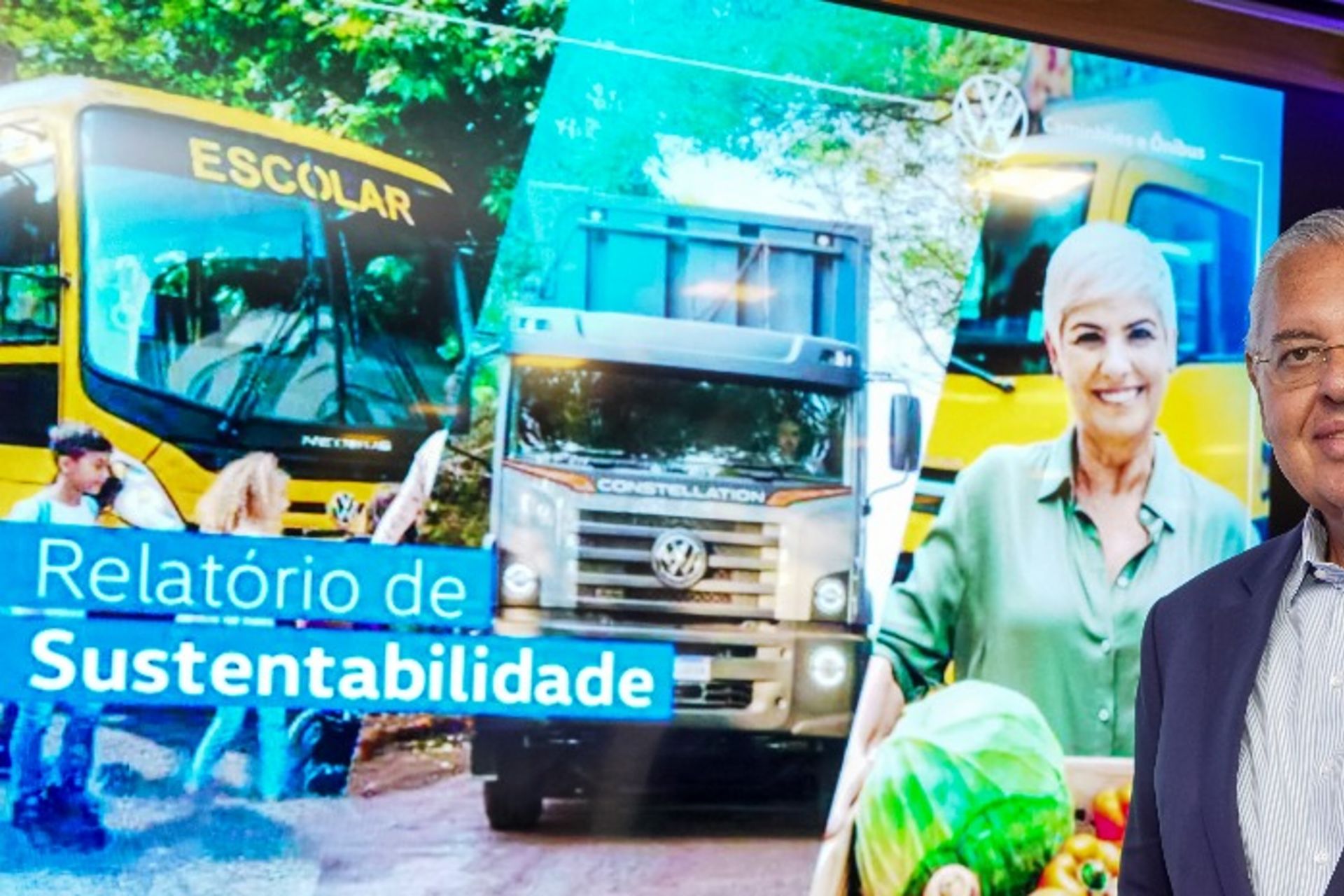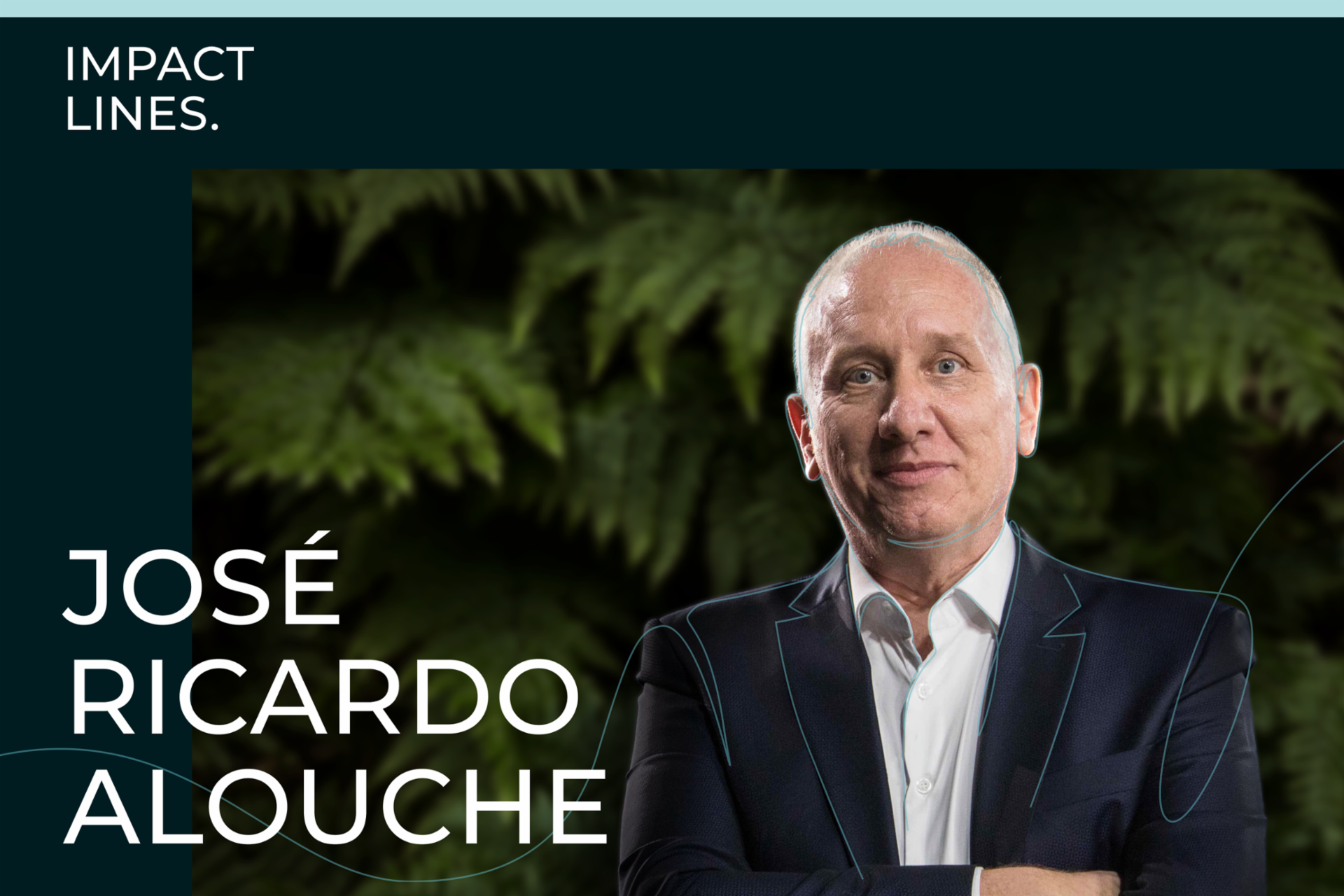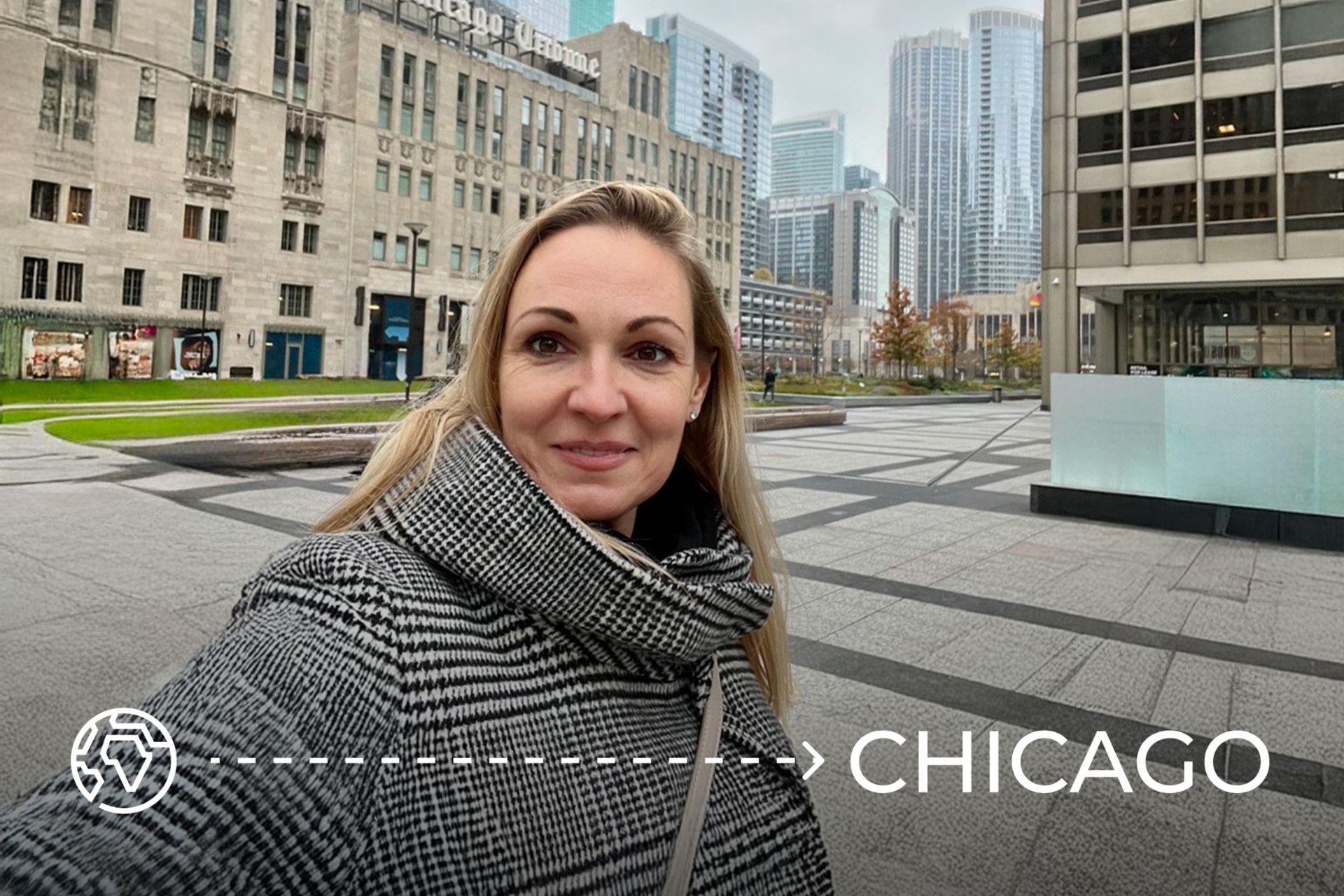Livia, you’ve been working for Volkswagen Truck & Bus (VWTB) since 2004, when you started as a trainee. During this time, you’ve worked in various positions, including as a strategy planner for the bus product line and a product planner for the Meteor heavy-duty truck series. To what extent has this multi-faceted career served as a solid foundation for your new role as Vice President of People & Culture and Sustainability?
I strongly believe in the importance of having an overarching knowledge of the transportation industry business as well as the TRATON GROUP and VWTB. To enable this, there’s nothing better than gaining experience in different areas, to connect the Group strategy to the technical, financial, and commercial aspects, and, most importantly, to get to know the people very well and have a good understanding of their needs and perspectives. This doesn’t just mean internal colleagues but also our business stakeholders, our partners, and our customers. From my perspective, it’s the key factor to succeeding as a leader.
I’m grateful that over the years, I’ve had valuable experiences in areas and projects as varied as our business environment, where people and teamwork are appreciated as the greatest assets and the key value to further growth.
Over the course of my career, I’ve acquired knowledge working with diverse people across all hierarchy levels. This has served as an important contribution to my current role and responsibilities. I work together with my team to translate the business and technical objectives from the perspective of People & Culture and Sustainability. We complement each other and this diversity from multiple backgrounds is a powerful asset in leading the changes.
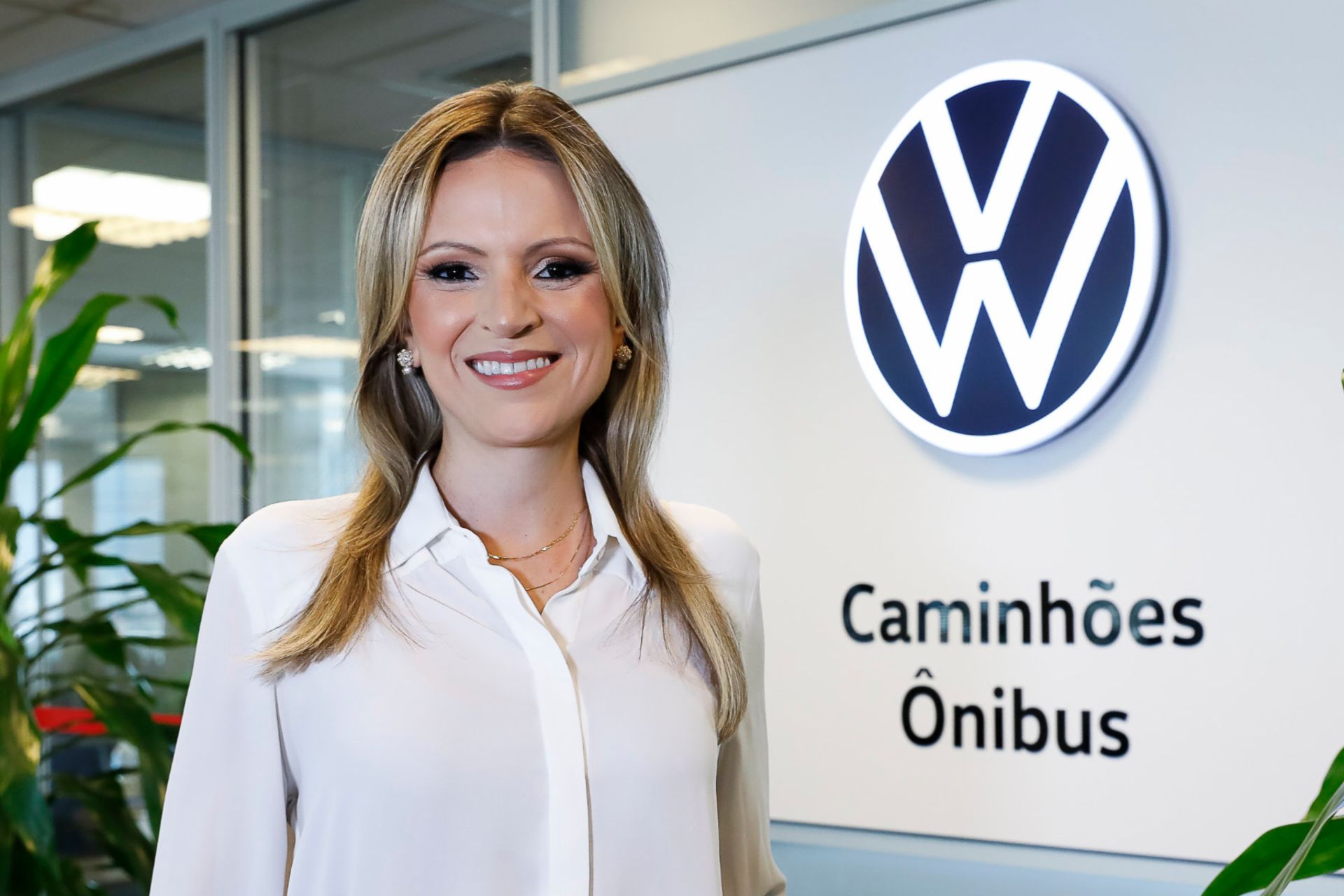
Do you have any particular personal experiences, maybe having worked or lived abroad, that you feel have impacted you and helped you arrive at where you are today?
Absolutely! I greatly appreciate the opportunities I have had on my journey to working on international projects, and I’ve developed both professionally and personally. My first international experience was in 2011: I lived in Munich, Germany, and worked together with MAN colleagues on the pre-development engineering of our new light trucks project for six months. Afterwards (from 2014 on), I had invaluable experiences working with partners from TRATON brands on cooperation projects relating to bus and trucks platforms, living other cultures, and learning together. Far beyond the great network, we built relationships based on respect and trust.
Currently, I am delighted and honored to be a member of the TRATON CHRO (Chief Human Resources Officer) team, with exceptional peers from TRATON, Scania, MAN, and Navistar, where we enjoy a great partnership. We have been building a strong and beautiful journey together.
The truck industry is traditionally male-dominated, so what advice would you give to women working in your field who aspire to become a board member one day?
First of all, it’s important to do your best every day, to work hard with persistence and resilience, and build good relationships. From my perspective, it’s necessary to keep faith in yourself, exercise your self-knowledge, and be prepared for opportunities that may come your way so you have the best chance to succeed.
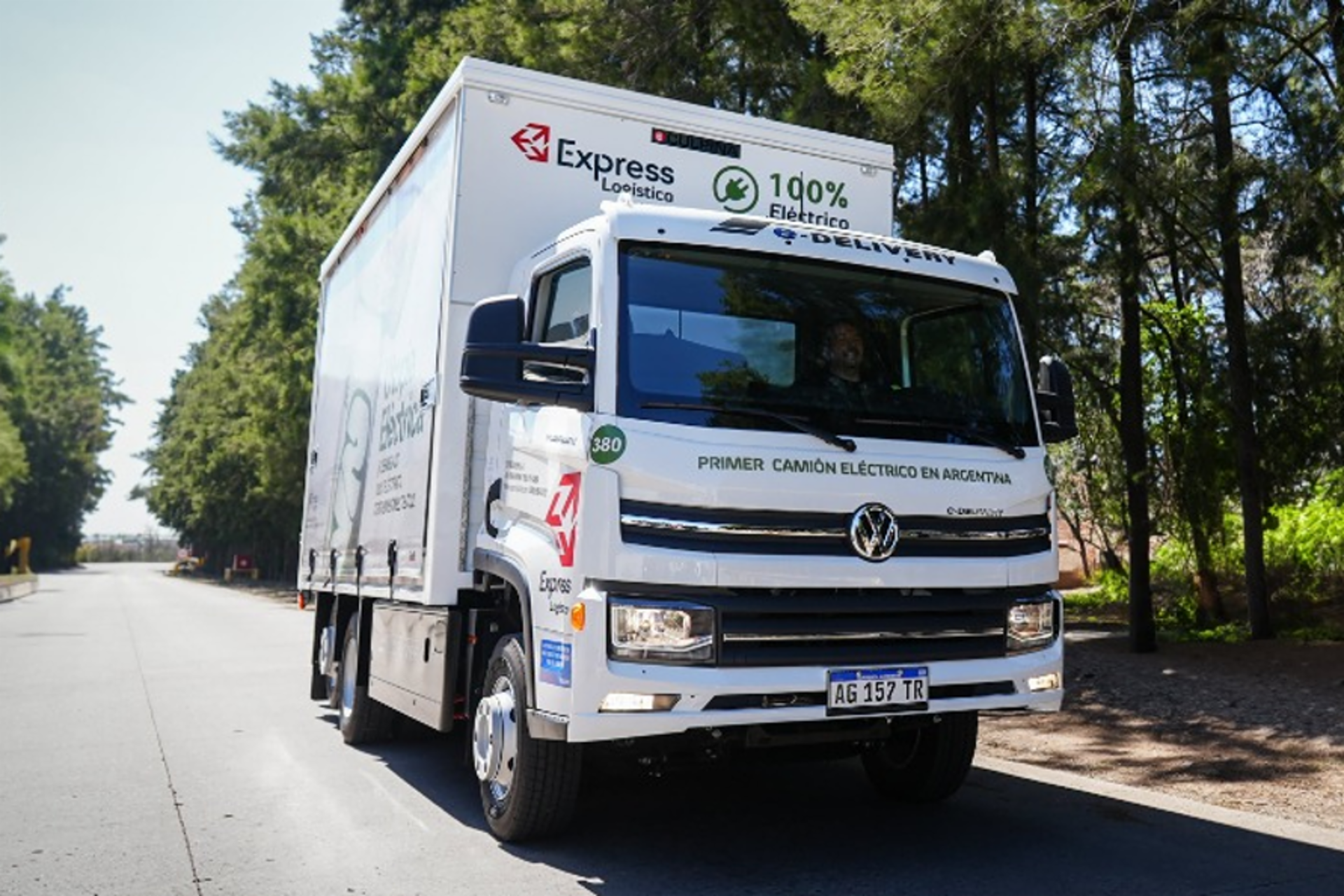
Can you tell us about any programs at VWTB that promote young, talented women? How could these concepts be scaled or transferred across the TRATON GROUP?
People development has always been a top priority at VWTB and TRATON in terms of both hard and soft skills. Over the years, we’ve implemented important initiatives together with a focus on education. We have a workstream at TRATON with representatives from all the brands focused on People Development, Competence, and Learning to offer learning opportunities to our colleagues. For instance, the annual global trainee experience, and the executive programs. I’ve taken part in this both as a student and latterly as a mentor. We work with excellent partners from the educational field and renowned institutions.
I’m also proud to share a major initiative that we’ve been developing at VWTB over the last months that was recently launched: the VWTB Academy! Our learning ecosystem for all VWTB employees, whose purpose is to provide quality educational experiences and learning opportunities to develop our people in new competencies with high relevance to our business, assuring organizational knowledge through an active and continuous learning process.
The skills shortage is a global challenge. In this context, we’ve been working on the new competences analysis, as well as on the necessary learning scope, including innovative technologies, to develop our people and empower them to lead the transformations in our business environment, such as electrification, digitalization, and software development. It’s crucial to ensure our competitiveness.
I believe the most important development opportunities for all employees within our company, both men and women, reside in our core daily business, when the managers support, prepare, and empower their teams to take on new challenges. This is the critical factor for our success and a meaningful way to ensure everyone can develop their skills. Our objective from 2023 onwards is to strengthen these initiatives and, in particular, to extend our portfolio of education programs and embrace a larger number of people across all hierarchical levels.
VWTB has been making great strides in developing electric vehicles. Can you share some of the challenges and breakthroughs the company has experienced during this transition to cleaner and more sustainable transportation solutions?
At VWTB, we’ve spent the last year renewing our portfolio to ensure that, from January 2023 on, it meets Euro VI standards. This was a key project: our investments were oriented to the latest developments and involved all the areas in our organization so that we could have a very positive environmental impact.
In parallel, we worked on our first electric vehicle, the e-Delivery truck, which launched in the middle of 2021. This was a key milestone not just for VWTB but also for TRATON because this vehicle has been developed and produced 100% in Brazil, with Brazilian engineers, in Brazilian production plants. We also worked with local and international partners on charging structure solutions and connected services, focusing on the vehicle life cycle. This was a very special project for everyone working across our organization – from R&D to production – who were deeply involved in these developments.
As a board member, how do you collaborate with other stakeholders to align sustainability initiatives with the company’s long-term vision and objectives?
To enhance our company strategy and governance on a long-term basis, we have top priorities for sustainability, with a high focus not only on the decarbonization plan and circularity but also on the fields of ethics, human rights, social responsibility, diversity, and inclusion.
At VWTB, we’ve been working together on a sustainability strategy and decarbonization targets across all the areas of our organization, enjoying a great partnership and support from TRATON. This year, we published our first sustainability report, demonstrating our commitment to society as a responsible company and our dedication to ESG topics. This builds on our strong heritage regarding our social and corporate responsibilities and environmental objectives, as well as the importance of governance and ethics in our operations.
What specific strategies has VWTB adopted to enhance diversity and inclusion within the organization, and what results have these efforts yielded so far?
Diversity and inclusion were priorities at VWTB even before they emerged as part of an official Group-wide strategic approach. We aim for diversity in all aspects, and based on this, we have implemented programs in recent years to embrace them, such as the creation of affinity groups and special opportunities for people with disabilities. This has given us the opportunity to work with many great people who have had the chance to build their careers and change their lives and those of their families.
We’ve also developed targets related to women at VWTB so that their presence can increase in all areas of our organization, and in management positions. From my perspective and that of my fellow board members, it’s important to ask how we can prepare women in our company and give them opportunities to succeed. While there is still work to do, I’m proud of how far we’ve evolved since I started here as an engineering student in 2004. At the beginning of my career, I was the only woman on my team.
In recent years, the importance of employer branding has grown significantly. How does VWTB position itself as an employer of choice, especially in the competitive South American talent market?
At VWTB, our top priority is to take care of our people. Over the years, we’ve made continuous improvements in this regard because our top management is genuinely committed to this. We’ve developed positive initiatives not only for VWTB employees but also embraced their families and the communities close to us.
We build the climate of our organization daily through appreciation of people and by observing what is really valuable for our colleagues.
Within our main experiences, I can highlight the integration of families: opening the doors of VWTB to welcome our employees’ family members, and the recognition events to appreciate the best practices in our organization.
We’ve prepared some excellent campaigns related to mental health and burnout prevention. This helps generate a sense of belonging in our company and our society. Our colleagues are really proud and motivated to support the local community, and we run several volunteering initiatives. It makes a difference and unites us, we‘ve become a big family. We’re very proud to be considered the best company to work for in the state of Rio de Janeiro, and in the top seven overall in Brazil.

